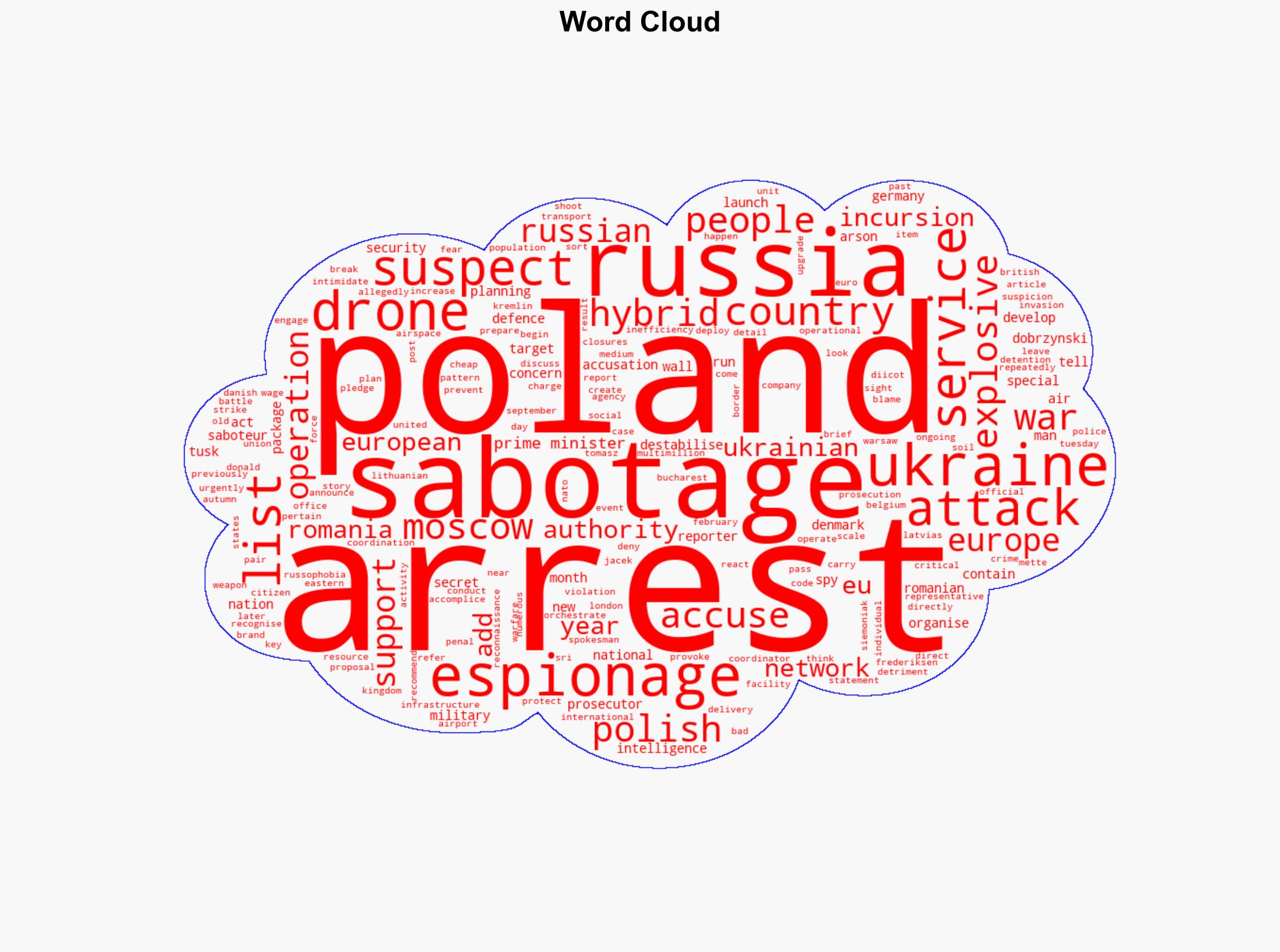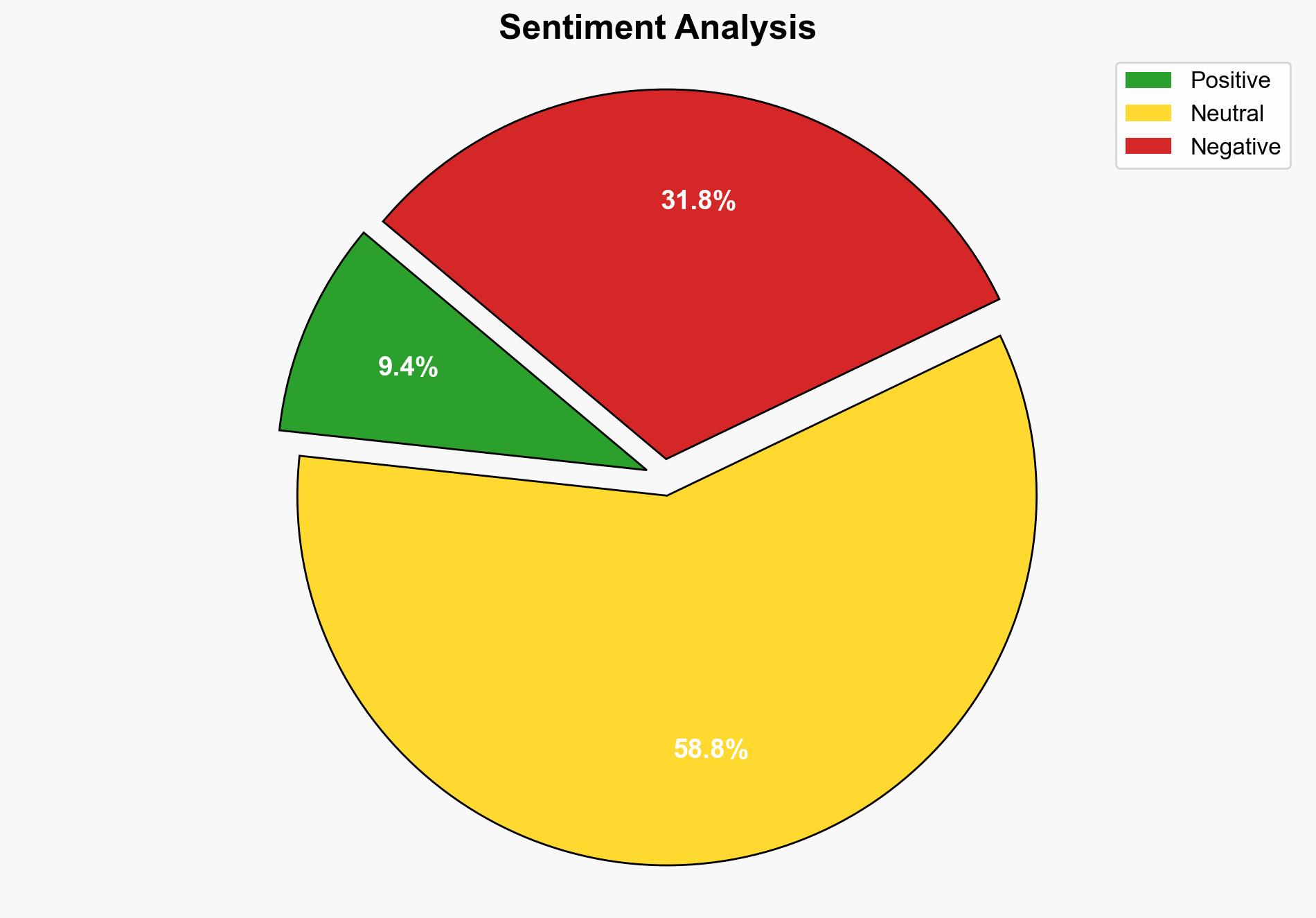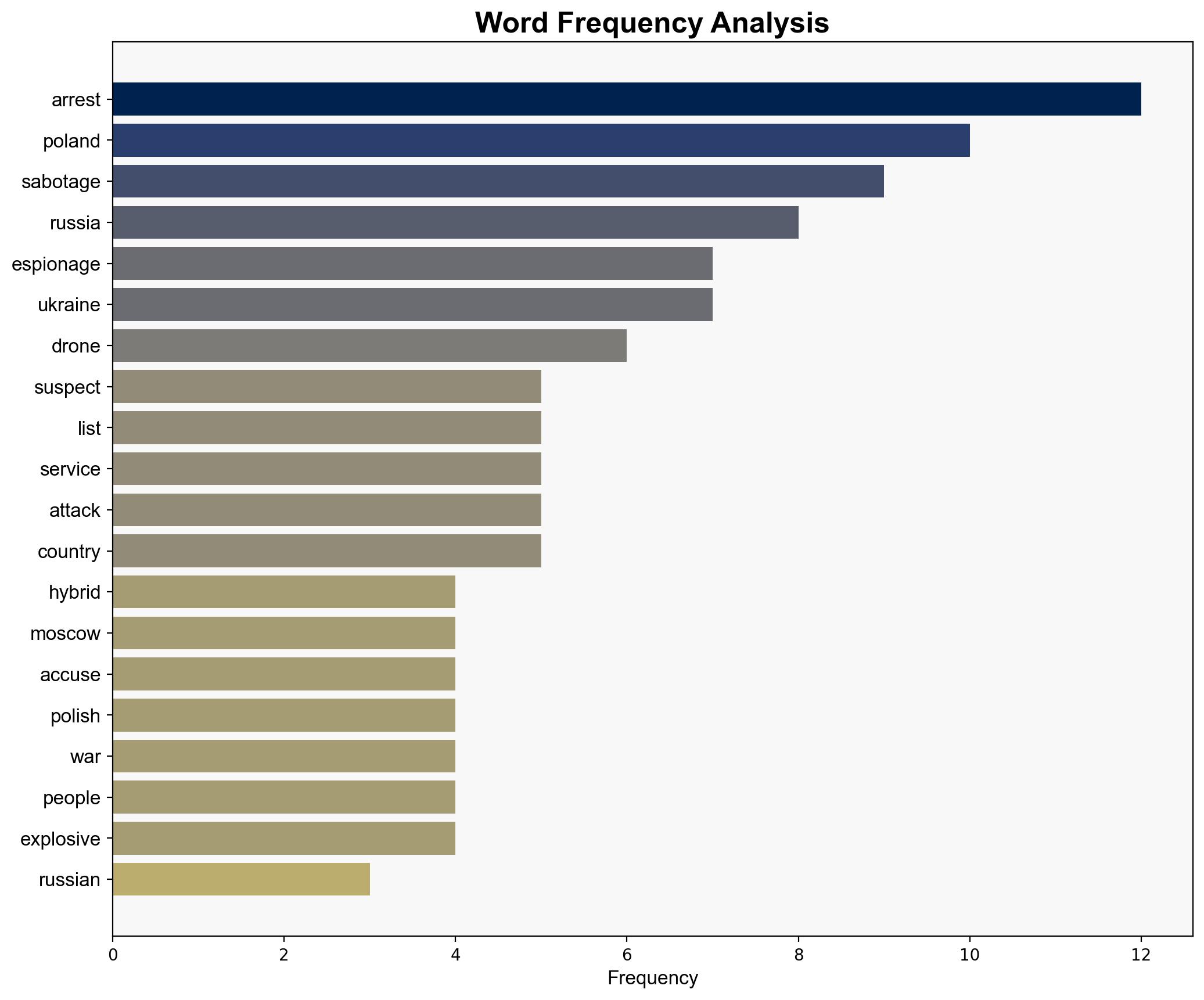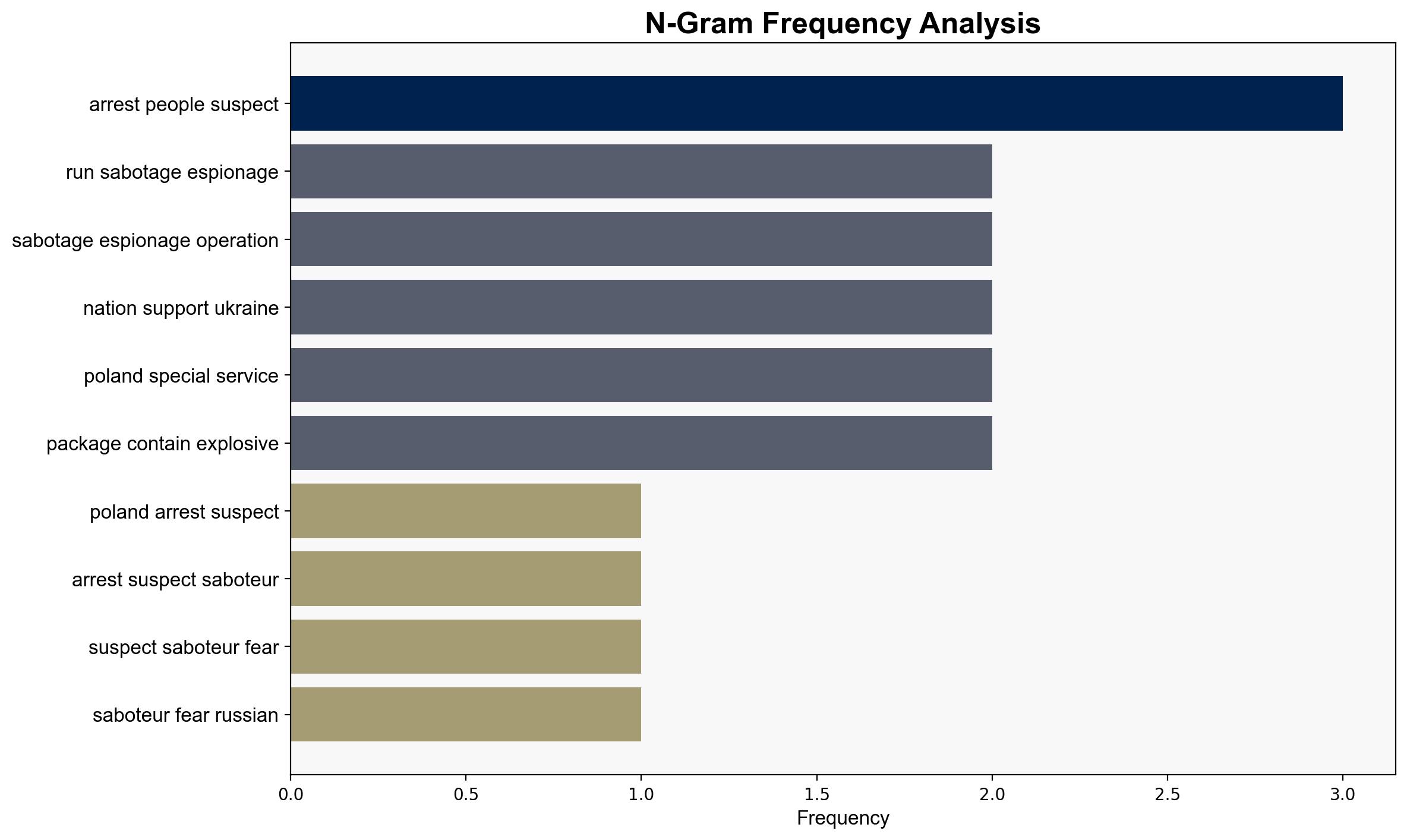Poland detains suspected saboteurs amid fears of Russian hybrid warfare – Al Jazeera English
Published on: 2025-10-21
Intelligence Report: Poland detains suspected saboteurs amid fears of Russian hybrid warfare – Al Jazeera English
1. BLUF (Bottom Line Up Front)
Poland’s recent arrests of suspected saboteurs highlight ongoing concerns about Russian hybrid warfare tactics in Europe. The most supported hypothesis suggests a coordinated Russian effort to destabilize EU nations supporting Ukraine. Confidence in this assessment is moderate due to limited public evidence. Recommended actions include enhancing intelligence-sharing among EU states and bolstering cybersecurity and counter-sabotage measures.
2. Competing Hypotheses
1. **Hypothesis A**: The arrests are part of a Russian-coordinated hybrid warfare campaign aimed at destabilizing European countries that support Ukraine. This includes espionage, sabotage, and psychological operations.
2. **Hypothesis B**: The arrests are isolated incidents not directly linked to a broader Russian strategy, possibly involving independent actors or groups with varying motivations.
Using Analysis of Competing Hypotheses (ACH), Hypothesis A is better supported by the pattern of similar events across Europe and statements from Polish and Romanian authorities about Russian involvement. However, the lack of concrete evidence directly linking these incidents to the Kremlin leaves room for alternative interpretations.
3. Key Assumptions and Red Flags
– **Assumptions**: It is assumed that Russia has the capability and intent to conduct hybrid warfare in Europe. Another assumption is that the individuals arrested are part of a coordinated network.
– **Red Flags**: The reliance on statements from national authorities without independent verification could introduce bias. The absence of detailed evidence linking the suspects to Russian intelligence raises questions about the solidity of the claims.
4. Implications and Strategic Risks
The potential for increased hybrid warfare activities poses significant risks, including economic destabilization, cyber threats, and heightened geopolitical tensions. If these incidents are part of a broader strategy, it could lead to escalated conflicts and a more fragmented EU response to Russian aggression. The psychological impact on public perception and trust in government institutions could also be significant.
5. Recommendations and Outlook
- Enhance intelligence-sharing frameworks among EU and NATO members to improve situational awareness and response capabilities.
- Invest in counter-sabotage and cybersecurity infrastructure to protect critical assets.
- Scenario Projections:
- **Best Case**: Improved cooperation leads to the dismantling of espionage networks, reducing the threat of hybrid warfare.
- **Worst Case**: Continued hybrid attacks lead to significant destabilization and increased military tensions in Europe.
- **Most Likely**: Ongoing low-level incidents maintain pressure on EU states, necessitating sustained vigilance and resource allocation.
6. Key Individuals and Entities
– Donald Tusk
– Tomasz Siemoniak
– Jacek Dobrzynski
7. Thematic Tags
national security threats, cybersecurity, counter-terrorism, regional focus





